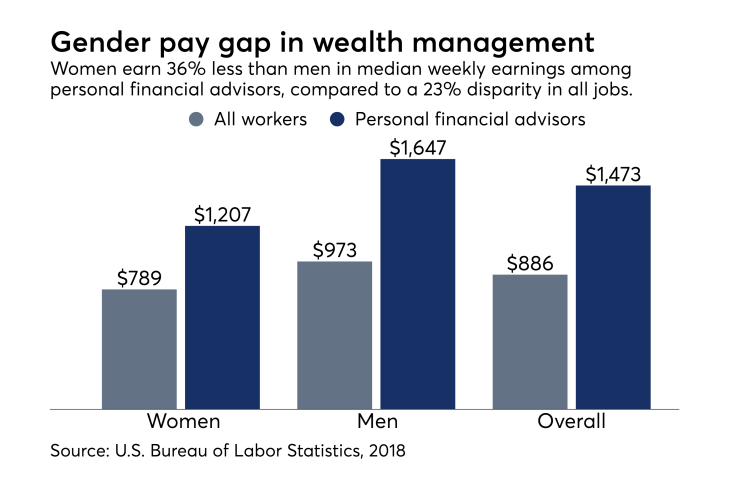NEW ORLEANS — In an industry facing both succession and diversity problems, how can independent broker-dealers help change the way the public perceives financial advisors?
Part of that is figuring out how to shed the “eat-what-you-kill” reputation of the industry, an issue which an all-woman panel of IBD executives grappled with at this week’s FSI OneVoice conference.
“Someone said yesterday that, ‘our advisors are in the business of solving complex problems and taking care of people,’ and I thought that was so beautifully said,” Cetera Advisors and First Allied Securities President Mimi Bock said. “It’s so much more than investment returns.”

Just 35% of retail investors
Bock, Advisor Group Executive Chairman Valerie Brown, Raymond James Financial Services President Jodi Perry and Northwestern Mutual Investment Services President Evamarie Schoenborn identified several issues shaping public perception, with Schoenborn citing “how people view the role of the financial advisor” as a challenge for the whole industry.
Brown said the ongoing debate around the now-vacated fiduciary rule and the SEC Regulation Best Interest proposal has been harmful to firms’ public standing. The more satisfied clients “don’t talk about performance at all” when asked about the role of their advisor, according to Schoenborn.
“They talk about their advisors being the one person that they know that they can count on, no matter what’s happening in their life. And they see them as their financial wellness guide,” Schoenborn said. “We could help women to understand that there’s so much more to this career than just the performance of investments.”
-
A new survey finds that investors prize full and upfront disclosures about fees and conflicts of interest, but advisors fall short.
April 6 -
Planners have picked up some bad habits over the years. Here’s what do to about it.
January 2 -
New data shows an increase in the number of CFP professionals who are people of color and women. But is it enough?
January 17
Macroeconomic trends and matters of convenience will move advisors, assets and markets next year in the ever-changing wealth management space.
The aging advisor population in the independent sector and the need to bring in young people keeps Brown up at night, she said, arguing the space needs younger, more ethnically diverse advisors, as well as more women. The sector may need to engage more if it hopes to move in this direction, though.
Only 3.5% of
Other
The executives urged FSI members to visit local colleges or even high schools to educate students on the merits of the profession and the IBD sector in particular.
However, Brown says students from “a lot” of the
Brown expressed hope that harmonizing standards across wealth management would help address the issue. She challenged attendees to get involved themselves, even as she cautioned that she didn’t mean to suggest she knows the “magic bullet” to boosting diversity and solving succession issues.
“Honestly, it really should be a compelling requirement that we get out to universities,” said Brown, arguing they would “start to change the dialogue about our side of the industry” in doing so. “If you’ve got the will, we can find a way to get a lot more young people and therefore diverse people into our industry,” she added.

In another approach, Raymond James has been lobbying for a couple of years for high schools to require a finance course for students in its home-office state of Florida, Perry said.
Resistance has come from the fact that another part of the curriculum would need to be excluded to add a new mandated course, says Perry, who aligned the approach with wider efforts aimed at encouraging girls to get into science, technology, engineering and math.
“We just have to keep going younger and younger, and I think we have to re-establish that this is such a good profession — whether you’re coming in on the executive side, whether you’re coming in as a financial advisor,” Perry said.
She said she hopes such an undertaking would “create some kind of security where women don’t feel like it’s an ‘eat what you kill’ [situation] and you’re living on commissions only.”
Raymond James supports a women’s leadership group started by advisors and trying to help women re-enter the field or start second careers. A one-year mentoring program for registered assistants also provides training and certification for new employees with the option of becoming advisors.
Cetera Financial Group — the parent of the two IBDs run by Bock — has
And Advisor Group has been ramping up its support for networking and staff development programs for advisors, as well as organizing visits to local universities. Bock asked the roughly 700 attendees to imagine what could happen if every one of them spoke to a finance course or attended a career fair.
“This is really an industry or profession opportunity for us to kind of take our dukes down and say, how are we going to solve this together as a profession, to make ourselves understood?” Bock said.






